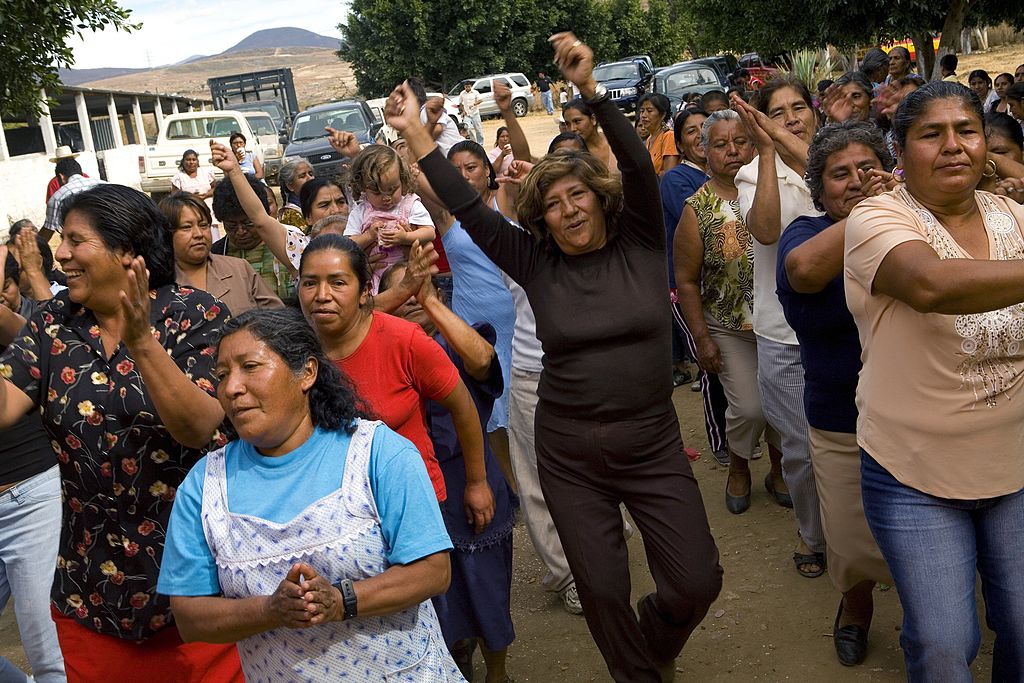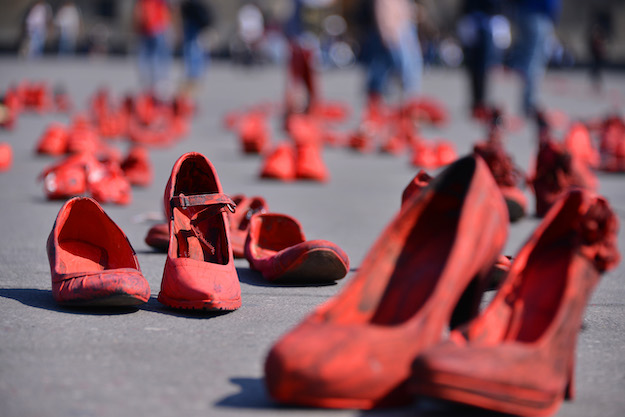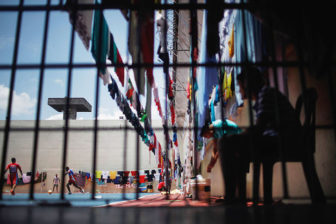BUENOS AIRES – From organizing for legal abortion to marching against gender violence, an energized women’s movement in Argentina has created real momentum on the streets and in Congress. In a country where the line between soccer and politics is thin, it’s little surprise that the sport is the latest battleground in the fight for equality.
That was evident last month when a group of athletes signed Argentina’s first professional women’s soccer contracts. The new San Lorenzo de Almagro women’s team is on the front lines of a push for equality in the sport. After litigation and activism from Argentina’s female players, the Argentine Football Association (AFA) announced the formation of a professional women’s league. Now, the 16 clubs that form Argentina’s top soccer division will also have paid women’s teams.
The charge for professionalization has been led by Macarena Sánchez, San Lorenzo’s new star, who sued her former team and the AFA seeking payment for seven years she played for UAI Urquiza, one of the country’s most competitive women’s teams.
“We have to stop seeing women’s soccer as girls who are having fun, and recognize it as a profession,” Sánchez said during a recent interview with Perfíl. “We are women working, whose rights are not being respected.”
Women have played semi-pro since 1991, and some of the country’s most emblematic clubs – including Boca Juniors and River Plate – have teams that compete against each other. The Argentine national team also qualified for the FIFA Women’s World Cup, set to be played in France in June. Still, female players face an uneven playing field, to put it lightly.
They have often been charged fees to compete. Equipment and travel costs are not always paid by teams. Most lack coverage for injuries. The Urquiza team has even hired women for part-time administrative duties rather than their athletic work. They are denied locker rooms. And if they’re lucky enough to get to practice on professional fields, it’s at obscene hours.
Women in soccer face structural deficiencies as well. There are few opportunities to play in amateur or school tournaments, and there is a lack of minor leagues that would help advance players to higher levels. Technical training is hard to access, and poor health care further complicates athletic development. And, of course, it’s impossible to train enough when most are not paid a salary for playing.
Management has blamed limited funding, though advocates say that argument holds little water. They say going pro will push up interest, audiences and press coverage – which in turn could generate sponsorships and other sources of income that will pay for the outlays. In Spain, Futbol Club Barcelona’s female team is completely self-financed with sponsorships and pays for top talent. In the meantime, the AFA support for professionalization will help with funding – the organization has committed to covering eight contracts for each team in the top league.
But the battle for the soccer pitch goes far beyond the usual struggles to modernize certain professions. The fight for professionalization strikes at the heart of a national soccer culture that is emblematic of the chauvinism that underlies gender violence across Latin America.
Argentina’s strong feminist movements, however, are helping change this. Sánchez, San Lorenzo’s new forward, has the support of lawyers and activists from Argentina’s women’s rights movements. And as October’s elections approach, their clout has forced soccer leadership – which often has political links – to pay attention. San Lorenzo club president Matías Lammens, a strong ally of the struggle to professionalize women’s soccer, has emerged as a potential Buenos Aires city mayoral candidate in October’s election – and with a progressive women’s rights agenda.
Argentina’s feminists have a long tradition of activism that dates back to the Madres de Plaza de Mayo’s iconic protests against the last military dictatorship in the 1970s. In recent years, Argentina’s feminist movement has become a regional beacon by spotlighting gender violence spurred by machista social views. The tug-of-war over reproductive rights is another key battle in the fight for progress.
On the spectrum of femicides, abortion and sexual harassment in several industries, payment for women who play soccer might seem like a low-ranking priority. But soccer is an all-defining feature of Argentine life. Pushing for equality on the playing field has meaning even for those women who never plan to set foot on a pitch.
“It’s centuries of thinking that women don’t have a specific body for playing, and that women’s bodies must be prepared only for maternity,” said Mónica Santino, a pioneer in Argentine women’s soccer who runs a program in one of Buenos Aires’ largest shantytowns. Playing the sport shows girls that they can use their bodies in other ways and empowers them to question machista social assumptions.
Soccer in Argentina is a cultural good, she argued in a recent interview. “It’s very difficult to detach yourself from soccer. So to pretend that women are outside of a cultural phenomenon of that nature is illogical.”
Already the feminist push within soccer has resulted not just in professional women’s teams, but also in more women involved in training, coaching, and commentating. A recently launched album will let young fans collect player stickers of the Women’s World Cup teams (equivalent to U.S. baseball cards). Critics say the AFA’s push is just cosmetic – a necessary response to pressure from the FIFA and public opinion. Payment for women’s teams, meanwhile, is considerably lower than their male counterparts. But the change is still notable. A few years ago the Boca Juniors team retired its cheerleaders in a nod to the Ni Una Menos demands regarding objectification of women. Now the most prominent women in the legendary Bombonera stadium are the Gladiadoras women’s team.
—
Timerman is a freelance reporter in Buenos Aires. She edits the Latin America Daily Briefing.






